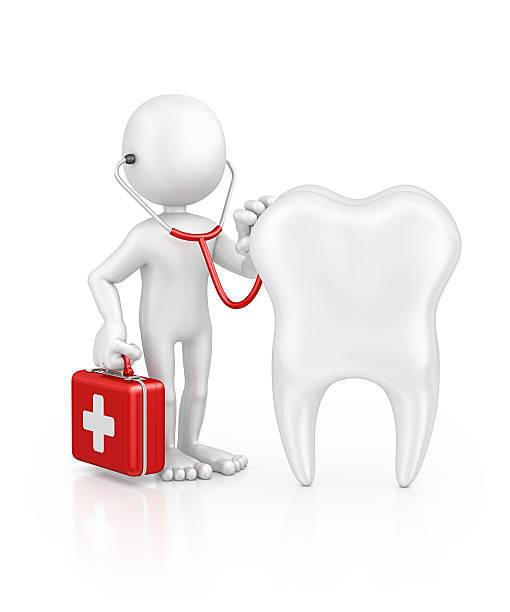
Emergency Dentist — High Point, NC
Need Help? Call Us Right Away!
True dental emergencies like toothaches or broken teeth should not – and in most cases, cannot – be ignored. In a situation where even a small delay can have significant consequences for your oral health, you need to call Gentle Care Family Dental immediately for an appointment. Dr. Bhadani has been trained to help patients find relief from various serious dental issues, and she will always make arrangements to see you as soon as possible to provide emergency dentistry in High Point, NC.
What to Do in a Dental Emergency
Most of the time, you won’t see a dental emergency coming. It might be dental pain that appears out of nowhere, or it could be an injury after an accident. Knowing what to do ahead of time can help you keep your wits about you even while you’re dealing with the shock. Here’s what to do in a dental emergency:
- Give us a call right away: As soon as you can, call us so we can make room in our schedule to see you right away. Oftentimes we can see emergency patients the same day they call us.
- Get first-aid instructions from our team: Our team can walk you through the necessary first-aid steps when you call so that you can control your pain and protect yourself from further injury until you reach us.
- See Dr. Bhadani for a same-day emergency exam: When you arrive, Dr. Bhadani will see you right away for an evaluation and relieve any serious pain you may be experiencing.
- Review your treatment options and make a plan: Bhadani will then review her findings with you, fully explain all your treatment options, and help you pick the one that is best for you.
- Get the fast, professional dental care you need: Once a plan has been made, our experienced team will get to work right away to repair your smile, alleviate your pain, and get your oral health back on track.

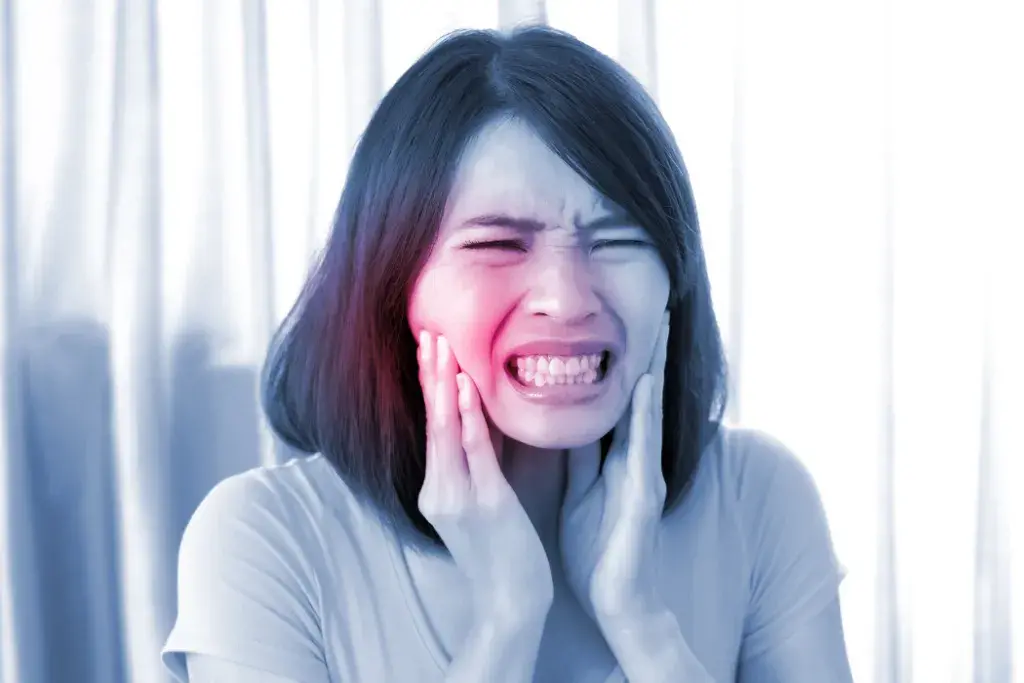
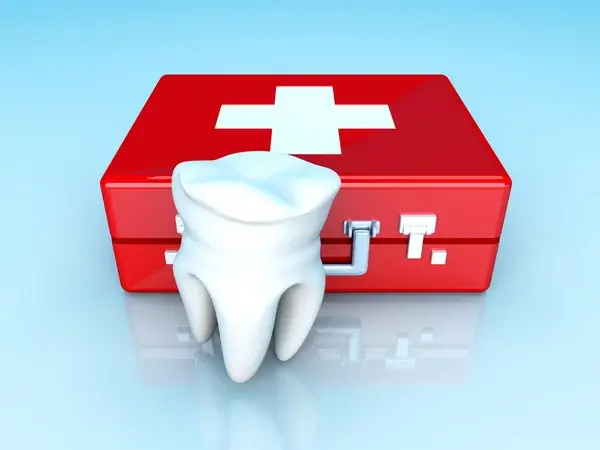
Understanding the Cost of Dental Emergencies
We can’t give you a range for what your emergency treatment is likely to cost until we’ve had a chance to look at your mouth and ascertain the true root of the problem. Only then can we determine what your treatment plan should consist of. Sometimes a filling or a crown will be enough to fix the damage, but there are times when advanced procedures such as a root canal will be needed instead. We can discuss the costs involved with your treatment as well as your financing options during your emergency appointment.
How to Prevent Dental Emergencies
It’s no secret that not every painful, broken, or knocked-out tooth can be avoided. However, recent research indicates that the vast majority of toothaches and dental pain treated at emergency rooms are caused by decay that could have easily been prevented. A few simple precautions and healthy habits can save you a tremendous amount of time, money, and headache in the long run! Read on as we go over the five best ways to prevent dental emergencies.
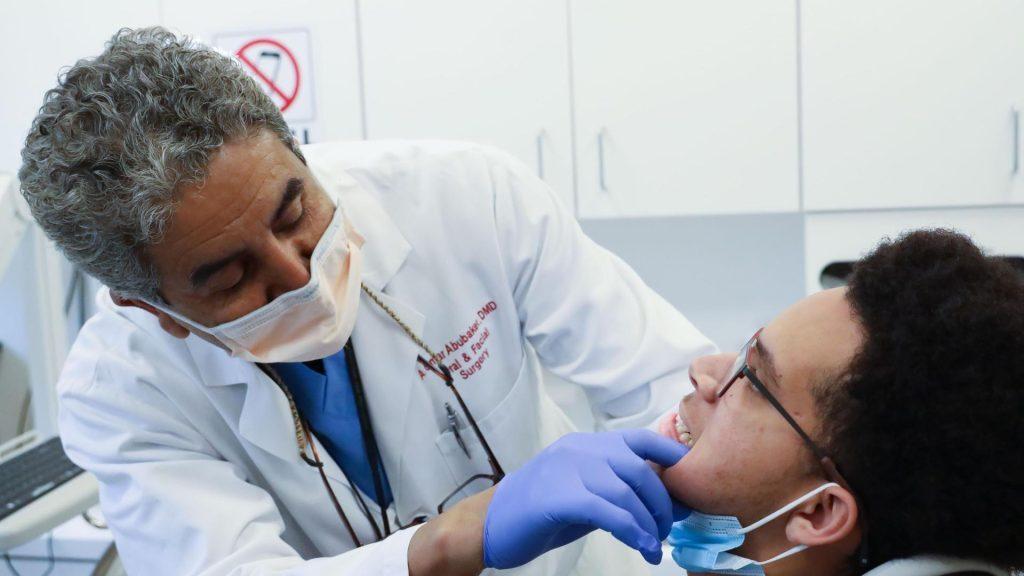

Unfortunately, oral health issues like tooth infections, gum disease, and more typically develop without being seen or felt. It’s not until they’ve caused unnecessary pain or damage that patients even realize there was a problem in the first place! When you come see us for your routine dental checkups every six months, we make sure to carefully look out for any warning signs of issues that could become bigger problems later. This way, we can address them while they’re still small and easy to treat!

Between appointments, the best way to keep oral health issues at bay is with a thorough oral hygiene routine that includes:
- Brushing with fluoridated toothpaste
- Brushing for a full two minutes twice a day
- Flossing between your teeth daily
- Rinsing with mouthwash regularly

You already know that eating too many sugary sweets will give you cavities, and that biting down on a popcorn kernel can crack a tooth. However, many people forget that carb-heavy foods, sticky treats, and acidic beverages are just as harmful for your teeth and gums. Try to avoid over-indulging in these items and drink plenty of water to wash away any troublesome lingering particles in your mouth.

Whether you play basketball, football, or basketball, if you participate in a sport where you could potentially take a blow to the face, you should wear a mouthguard. Not only will a sports mouthguard help prevent knocked-out teeth, but they’ll also help you avoid cracked teeth, soft tissue injuries, and even potentially concussions.
If you constantly wake up with headaches, jaw soreness, or sensitive teeth, you may need a different type of mouthguard. These symptoms are all warning signs of grinding your teeth in your sleep, which is a condition called bruxism. Over time, this condition can cause serious issues like enamel damage and jaw problems! Thankfully, a custom nightguard for bruxism can help protect your smile while you sleep.

Have you ever opened a package or bottle with your teeth? Do you ever find yourself holding keys or bags with your teeth when you’re carrying too much? Your teeth are strong, but they’re not indestructible! Using them as tools on non-food items dramatically wears down your enamel and can potentially introduce new bacteria into your mouth. What at first may seem like a convenient shortcut can easily send you to our office with a chipped or cracked tooth in the blink of an eye! To avoid this, make sure you always use the right tools for the job.
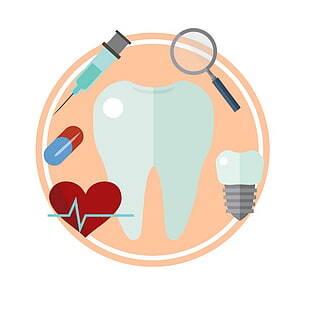
Dental Emergency FAQ’s
Dental emergencies never seem to happen at a convenient time, and it is difficult to know what to do when you feel panicked or in pain. The good news is that we are here to help! Here are the answers to some of the most common questions we are asked about dental emergencies. If your question isn’t listed below, don’t worry! Just give us a call, and we’d be happy to get you the information you’re looking for and schedule you for an urgent appointment.
Most emergency rooms aren’t able to address dental emergencies effectively like a dentist can. It most dental emergency circumstances, you should visit a dentist first. Dr. Bhadani will always make arrangements to see you as soon as possible if you are encountering a dental emergency. However, if you have a jaw fracture or dislocation, serious cut or laceration to the face or mouth, or an infection that is affecting your ability to breathe or swallow, the emergency room is the best option.
You should always schedule an appointment with a dentist after you chip a tooth. Even if you aren’t currently feeling any pain, the inner area of the tooth may be exposed and vulnerable to bacteria, so this needs to be confirmed by a dentist. However, you probably don’t need to drop what you are doing right now to go to the dental office. Just give us a call and we can schedule you for an appointment in the next couple of days. You don’t want the chipped tooth to break any further because you didn’t get professional attention.
Throbbing tooth pain is likely a sign that you have an infection or inflammation within the tooth. When you have a cavity or crack in your tooth, this allows air and bacteria to reach the sensitive inner areas. This results in irritation and potentially an infection of pulp nerves, resulting in pain. In other cases, throbbing can be a result of chronic teeth grinding and clenching.
You should never try to pop a dental abscess on your own. Instead, you should get in touch with us right away. Tooth and gum abscesses are considered a dental infection and are therefore a serious and urgent dental emergency. If you pop the abscess, this will only expose your mouth to more bacteria and irritate the area more. If you put off dental treatment, the infection nay spread throughout the mouth and to other areas of the body. If you think you have a dental abscess, don’t wait to give us a call!


